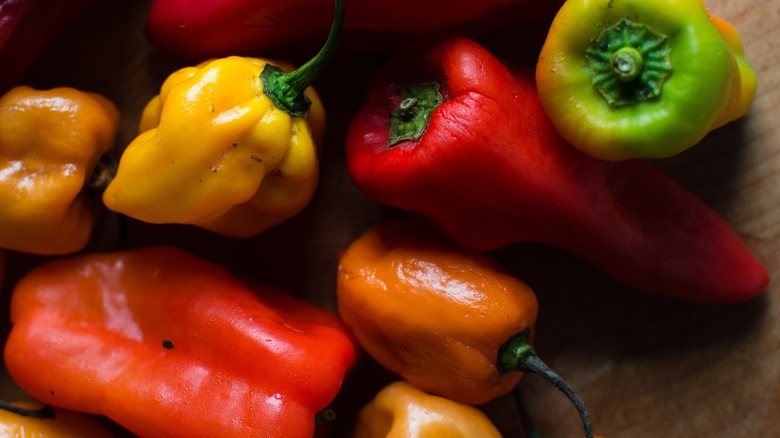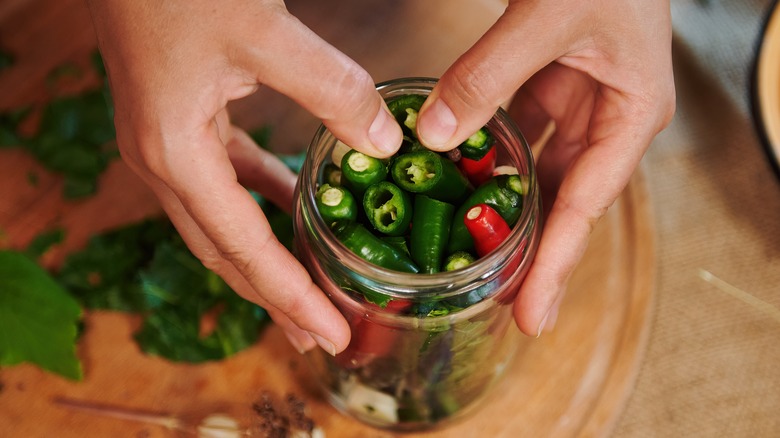The Hot Sauce Trick To Preserve Peppers
Whether you're a gardener with a bountiful crop of jalapenos or just picked up too many habanero peppers on a run to the grocery store, sometimes you end up with more fresh peppers than you can use before they go. Luckily, these spicy treats are easy to preserve with one simple trick as old as cooking itself — fermentation. Peppers of all types can be fermented into a simple and delicious hot sauce with just a few ingredients and a bit of time.
All you need to do is place your sliced or chopped peppers in a jar and fully submerge them in a salt brine solution. Modern Farmer recommends a brine with one tablespoon of salt for each cup of water to maintain proper conditions. Add any spices or flavorings, then loosely cover and place in a cool, dark place. The container shouldn't be airtight, as the fermentation process produces gases that can build up and cause it to burst if left too long without opening.
Pepper Geek recommends that you ferment for two to three weeks before blending the peppers with a cup of brine to create your sauce. Adjust for any final flavorings, and enjoy.
Here's the magic of good bacteria
It's important to remember that you need to store your hot sauce in a container where air can escape for the same reasons it was fermented in one initially. Fermented products are "alive" and continue to develop over time through the presence of remaining bacteria. Slow this process by storing the finished product in the refrigerator.
If you're not familiar with fermentation, it uses beneficial bacteria that feed on sugars in the peppers and brine solution to create flavorful compounds that do double duty in preserving the peppers as well. This occurs through the production of beneficial enzymes that inhibit the growth of harmful bacteria, mold, or other substances. It's the same process that creates items like sauerkraut or kimchi. According to Pepperscale, fermentation also mellows some of the heat of peppers and produces more complex flavors than can be achieved by unfermented sauces.
So why ferment your peppers into hot sauce? For one, it's simple. Once you've placed your peppers in the brine, all that's left for you to do is monitor the jar and wait to blend. It's also easy to do with ingredients every home cook has on hand, yet endlessly customizable with different types of peppers and seasonings. In addition, fermented foods work wonders on your body, from improving digestion and immune response to reducing inflammation. With just a few minutes of slicing and blending and a few days of waiting, you'll never have to waste a pepper again.

